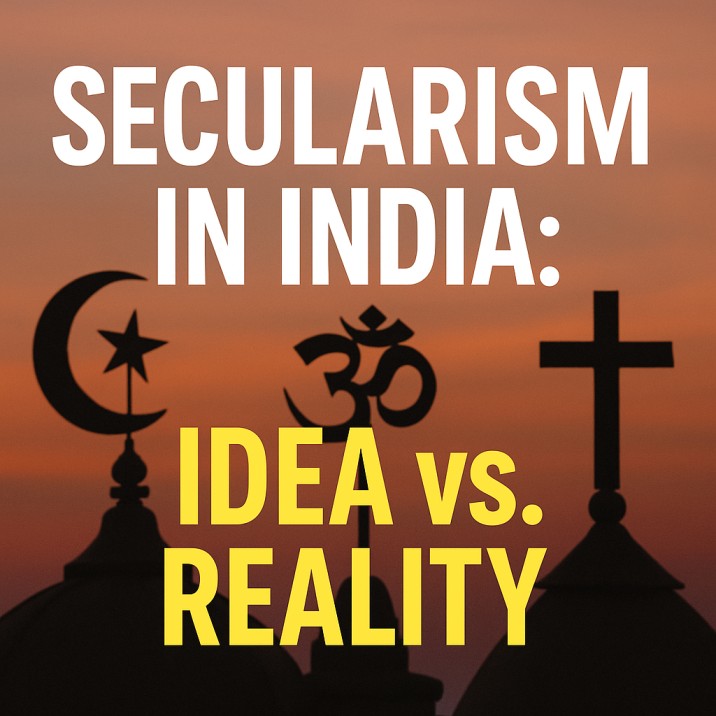Secularism in India: Idea vs. Reality , When the Constitution was framed, secularism was placed at the heart of Indian democracy. The idea was simple: the State should stay neutral, every citizen must be free to practice their faith, and no religion should enjoy special treatment.
But in today’s politics, secularism is more a slogan than a practice. Religion has become a tool for elections. The principle of “equal respect for all faiths” is constantly tested by communal politics.
Religion in Politics
From promises of subsidies for one faith to targeted attacks on another, political strategies often revolve around religious identity. Hate speeches, misinformation, and vote-bank politics have turned religion into an election weapon.
The Real Challenges
Growing communal tensions
Divisive election campaigns
Exploitation of religious sentiments for votes
Citizens’ Perspective
For ordinary Indians, secularism is not about slogans — it’s about daily life. Jobs, education, healthcare, and development matter more than political games of religion. But unless voters reject divisive politics, the misuse of religion will continue.
Secularism is the backbone of Indian democracy. Weakening it means weakening democracy itself. India’s strength has always been diversity — but only if secularism protects it.
https://inc.in/our-values/secularism
-BY VEERAMUSTI SATHISH,MAJMC
READ MORE:
Lokpal and Lokayukta: India’s Anti-Corruption Watchdogs Explained
Top Landmark Supreme Court Judgments in India That Changed Indian Democracy

